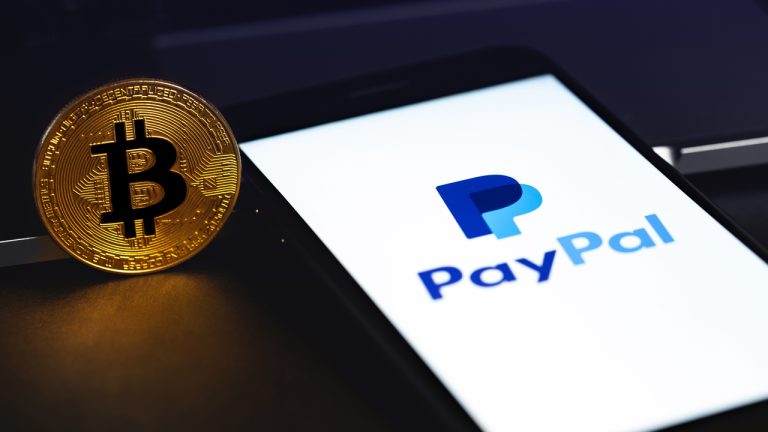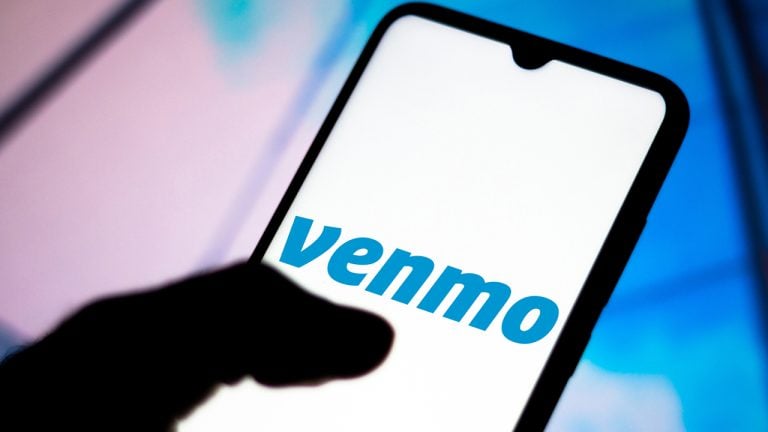
One of the world’s leading payments firms is making a new push into crypto with a brand new US dollar-backed stablecoin built on Ethereum (ETH). PayPal is unveiling PayPalUSD (PYUSD), a stablecoin that aims to keep a 1:1 peg with the US dollar. In a new announcement, PayPal says PYUSD is designed to improve payments. “Today, we’re […]
The post PayPal Unveils New Dollar-Backed Stablecoin PYUSD Built on Top of Ethereum Network appeared first on The Daily Hodl.

Deposits on mobile payment apps may not be insured by the FDIC, and customers may not know whether their money is insured or not.
Keep your money in an insured account, not on an uninsured payment app, the United States Consumer Financial Protection Bureau (CFPB) warned Americans in a report released June 1. The increasing popularity and utility of nonbank peer-to-peer (P2P) payment apps, including for crypto asset transactions, makes the risk of loss in the event of a crisis ever more concerning, the watchdog said.
Public awareness of Federal Deposit Insurance Corporation (FDIC) coverage has grown since the bankruptcy of crypto platforms like FTX, Voyager and others last year, and this year’s banking crisis led to the loss of hundreds of millions of customer dollars, CFPB said. Nonetheless, billions of dollars are being stored on payment service apps without the benefit of FDIC coverage.
Many P2P apps — the CFPB lists PayPal, Venmo, Cash App, Apple Pay and Google Pay as examples — offer stored value services “that closely resemble deposit accounts.” Meta Pay does not offer services of that type.
Payment service providers are motivated to encourage customers to store funds with them because those funds can be used by the provider for investment purposes, subject to legal constraints, while the services rarely pay interest on stored funds. Providers are subject to the risk of those investments losing value.
Related: Cash App Bitcoin revenue tops $2B in the first quarter
Even in the event that customer funds were held in an FDIC-insured account, the customer’s eligibility for pass-through deposit coverage is only determined after a failure has occurred, CFPB said. Furthermore, the insurance protects against the failure of the bank, not the payment service, which is typically regulated at the state level and not subject to federal supervision. Most state regulation was designed for money transfer, not storage.
Thus, funds held by PayPal or Venmo in their program banks may be eligible for pass-through insurance, but funds that have been invested by the providers are not eligible. Customers may not know where their deposits are stored.
Mobile payment services are increasingly enabling crypto asset transactions. Crypto assets are not insured, although services like PayPal and Venmo allow customers to hold crypto in their accounts.
Magazine: ‘Account abstraction’ supercharges Ethereum wallets: Dummies guide

Payments giant PayPal is investing millions into San Francisco-based crypto wallet company Magic in its latest venture into the digital assets space. According to Magic’s press release, the wallet-as-a-service (WaaS) provider raised $52 million in a strategic funding round led by PayPal Ventures. Says Alan Du, a PayPal Ventures partner, “Mass adoption of Web3 is […]
The post Payments Giant PayPal Invests in New Crypto Wallet Software in Push for Web3 Adoption appeared first on The Daily Hodl.

The company has raised $80 million for wallet development since its inception in 2020.
On May 31, San Francisco-based wallet-as-a-service (WaaS) provider Magic announced that it had successfully raised $52 million in a strategic funding round led by PayPal Ventures. The funding round also saw participation from venture firms Cherubic, Synchrony, KX, Northzone, and Volt Capital, bringing Magic's total funds raised to over $80 million.
Magic's software is currently used by brands in retail, music, fashion, and gaming, including Mattel, Macy's, Xsolla, and Immutable. With the funding, Magic aims to increase adoption by providing authentic digital ownership opportunities and plans to expand functionality, enhance use cases, and deepen integration within the European Union and Asia-Pacific region.
By implementing Magic's software development kit (SDK), vendors can enable users to create wallets using existing email, social, SMS, or federated logins. The software provides an all-in-one package for user onboarding, which includes authentication, fiat on-ramps, nonfungible token (NFT) minting and NFT Checkout.
We're thrilled to announce our latest funding of $52M backed by @PayPal @cherubicvc @synchrony @northzoneVC @VoltCapital @KX. Magic is solving web3 onboarding and our mission is to give a wallet to every internet user.
— Magic (@magic_labs) May 31, 2023
Read morehttps://t.co/9tdZsH3lxH
The platform also says it complies with various regulations, such as SOC2 Type 2, CCPA, GDPR, HIPAA, and ISO. Founded in 2020, Magic has generated over 20 million unique wallets to date, with more than 130,000 developers utilizing its SDK. The company claims its proprietary technology can generate upwards of 2,000 wallets per second.
Crypto and Web3 wallet providers have attracted sizable funding rounds in recent years. In November 2021, Cointelegraph reported that ConsenSys, the Web3 software developer behind self-custodial wallet MetaMask, raised $200 million at a $3.2 billion valuation. Similarly, on March 30, 2023, crypto wallet provider Ledger raised $109 million at a valuation of $1.4 billion after a surge in demand for self-custody. The same month, multichain wallet BitKeep announced that it raised $30 million at a $300 million valuation.
Magazine: ‘Account abstraction’ supercharges Ethereum wallets: Dummies guide

Users in the United States can also transfer ETH from PayPal to MetaMask. The companies first announced their collaboration in 2022.
Crypto wallet MetaMask has started rolling out Ether (ETH) purchases via PayPal for users in the United States — one of Metamask's biggest markets. The company claims to be the first Web3 wallet to offer ETH transactions via PayPal.
Through the collaboration, American users can now choose PayPal as their payment method when buying ETH using MetaMask. The integration also makes it possible to transfer ETH from PayPal to MetaMask.
The financial technology firm teamed up with MetaMask parent ConsenSys last December, claiming the partnership would allow users to buy crypto seamlessly and explore the Web3 ecosystem easily.
#DYK
— MetaMask (@MetaMask) May 11, 2023
MetaMask is the first web3 wallet to enable users to buy ETH using PayPal!
Get started herehttps://t.co/RGcamJQoQ2
PayPal is joining a wide ecosystem of payment providers already integrated with MetaMask, including Coinbase Pay, MoonPay, Sardine, Transak, and Wyre, among others. In a quarterly report filed with the U.S. Securities and Exchange Commission, the company disclosed a total of $943 million in crypto assets as of March 31, 2023, a 56% jump from the previous quarter when the company reported $604 million in crypto assets.
The new integration came mere weeks after MetaMask announced a new feature for users to purchase crypto with fiat currency directly from its Portfolio Dapp. Known as “Buy Crypto,” the new functionality enables users to purchase a range of cryptocurrencies using various payment methods, including debit or credit cards and bank transfers.
Over 189 countries will be covered by the service, which supports more than 90 cryptocurrencies across eight networks, including Ethereum, Polygon, Arbitrum, BNB Smart Chain, Avalanche Contract Chain, Fantom, Optimis, and Celo. For each purchase, the feature considers the user's location and local regulations to provide a customized quote.
MetaMask has been pushing for integrations and partnerships to expand its reach and offer on-ramps for its customers. One of its recent developments sought to expand direct access to cryptocurrencies in Nigeria. By partnering with crypto fintech MoonPay, the wallet now enables users in the African country to purchase crypto via instant bank transfers. Nigeria is ranked among the top 20 countries in cryptocurrency adoption, according to Chainalysis 2022 Global Crypto Adoption Index.
Magazine: Joe Lubin — The truth about ETH founders split and ‘Crypto Google’
 Payments behemoth Paypal has disclosed in a Form 10-Q financial report filed with the U.S. Securities and Exchange Commission (SEC) that it is holding nearly $1 billion in cryptocurrency assets. This news comes on the heels of Paypal’s announcement that Venmo now facilitates external transfers of cryptocurrencies to wallets and exchange platforms. Paypal’s Crypto Holdings […]
Payments behemoth Paypal has disclosed in a Form 10-Q financial report filed with the U.S. Securities and Exchange Commission (SEC) that it is holding nearly $1 billion in cryptocurrency assets. This news comes on the heels of Paypal’s announcement that Venmo now facilitates external transfers of cryptocurrencies to wallets and exchange platforms. Paypal’s Crypto Holdings […]
The lion’s share of the fintech’s held cryptocurrency assets lie in BTC and ETH with $499 and $362 million respectively — up more than 56% since Q4 2022.
Financial technology company PayPal recently disclosed its cryptocurrency holdings in a quarterly report filing to the Securities and Exchange Commision (SEC).
Claiming a combined total of $943 million in cryptocurrency assets as of March 31, 2023, the filing shows a 56% increase over the company’s previous quarter where PayPal disclosed $604 million.
PayPal's reported total financial liabilities for this quarter were $1.2 billion, with crypto assets making up 77.9% — up more than 10% from 2022’s reported fourth quarter liabilities.
Related: PayPal crypto partner Paxos raises $300M
According to the report, PayPal considers its crypto assets a “safeguarding liability” due to the the “unique risks associated with cryptocurrencies.” The disclosure also indicates that the specific cryptocurrencies held by the company remain unchanged since last quarter:
"We allow our customers in certain markets to buy, hold, sell, receive, and send certain cryptocurrencies as well as use the proceeds from sales of cryptocurrencies to pay for purchases at checkout. These cryptocurrencies consist of Bitcoin, Ethereum, Bitcoin Cash, and Litecoin (collectively, “our customers’ crypto assets”)."
Custody of the assets PayPal holds on behalf of its customers remains limited to third-party holding companies. PayPal recognizes that this presents a liability for customers in the event that third parties are unable to process transactions — a statement carried over from last quarter’s filing — however, the filing also indicates that no such fault has yet occurred:
“As of March 31, 2023, the Company has not incurred any safeguarding loss events, and therefore, the crypto asset safeguarding liability and corresponding safeguarding asset were recorded at the same value.”
The Q1 2023 cryptocurrency asset breakdown for PayPal includes $499 million in Bitcoin (up from December’s $291 million), $362 million in Ether (up from $250 million), and $82 million composed of Bitcoin Cash and Litecoin (up from $63 million).

PayPal's profitability also increased in the first quarter. On a GAAP basis, the company disclosed per-share earnings of $0.70, up from $0.43 in the first quarter of 2022. On a non-GAAP basis, PayPal's per-share earnings were $1.17, up from $0.88 in the first quarter of 2022.
 After the American financial technology giant Paypal rolled out crypto payments last year, the company is now introducing cryptocurrency transfer services to Venmo users. The firm detailed that Venmo customers will be able to send funds to an existing Paypal account, an external wallet, or a crypto exchange platform. Venmo Customers Can Now Transfer Cryptocurrency […]
After the American financial technology giant Paypal rolled out crypto payments last year, the company is now introducing cryptocurrency transfer services to Venmo users. The firm detailed that Venmo customers will be able to send funds to an existing Paypal account, an external wallet, or a crypto exchange platform. Venmo Customers Can Now Transfer Cryptocurrency […]
Mobile payments giant Venmo has just announced plans to roll out a new feature that will enable the over 70 million users of the platform to transfer crypto assets. According to a new press release, the feature will allow customers to transfer crypto to other Venmo users as well as relocate digital assets to external […]
The post Mobile Payments Giant Venmo Rolls Out New Crypto Transfer Service With Parent Company PayPal appeared first on The Daily Hodl.

Users of the mobile payment service will also be able to receive crypto through a QR code or external crypto address.
Users of mobile payments service Venmo will soon be able to buy cryptocurrencies and send them to other Venmo users or external wallets beginning in May, according to an April 28 announcement from PayPal executive Jose Fernandez da Ponte. PayPal is the parent company of Venmo.
Dropping in to announce a new feature of ours: crypto transfers⚡Get started now. https://t.co/R9QtUENfae pic.twitter.com/UoeEAWVhlz
— Venmo (@Venmo) April 28, 2023
At a Consensus 2023 interview titled “PayPal’s Next Chapter in Crypto,” da Ponte explained how the new feature will work:
“Starting in May, we are going to be enabling on-chain transfers from Venmo wallets, meaning that you can buy crypto on Venmo and send it to another Venmo user; you can send it to a PayPal user; you can send it to [an] external wallet; you can send it to your hardware wallet.”
The executive said this feature would expand the choices available to Venmo users, which he said has proven successful when implemented on PayPal. It would also provide a “use case” for digital assets because now crypto will be used for “fast and free near-instant transfers between Venmo wallets and PayPal wallets, which is basically connecting two of the largest networks and wallets in the country.”
Related: From PayPal to Web3: Digital identity could play key role in adoption
An April 28 help page from Venmo’s website states that verified users will also be able to receive crypto from external addresses through a “crypto address QR code.”
Venmo started allowing crypto purchases in April 2021, and the app’s mobile version currently lists Bitcoin (BTC), Ether (ETH), Litecoin (LTC) and Bitcoin Cash (BCH) as options. Crypto features do not appear to be available on the desktop version.
PayPal has partnered with other companies to expand its crypto service offerings. In December, the payment provider integrated with MetaMask, allowing MetaMask users to purchase crypto through their PayPal personal accounts and have it sent directly to their self-custodial wallets.